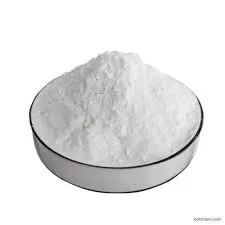- Afrikaans
- Albanian
- Amharic
- Arabic
- Armenian
- Azerbaijani
- Basque
- Belarusian
- Bengali
- Bosnian
- Bulgarian
- Catalan
- Cebuano
- Corsican
- Croatian
- Czech
- Danish
- Dutch
- English
- Esperanto
- Estonian
- Finnish
- French
- Frisian
- Galician
- Georgian
- German
- Greek
- Gujarati
- Haitian Creole
- hausa
- hawaiian
- Hebrew
- Hindi
- Miao
- Hungarian
- Icelandic
- igbo
- Indonesian
- irish
- Italian
- Japanese
- Javanese
- Kannada
- kazakh
- Khmer
- Rwandese
- Korean
- Kurdish
- Kyrgyz
- Lao
- Latin
- Latvian
- Lithuanian
- Luxembourgish
- Macedonian
- Malgashi
- Malay
- Malayalam
- Maltese
- Maori
- Marathi
- Mongolian
- Myanmar
- Nepali
- Norwegian
- Norwegian
- Occitan
- Pashto
- Persian
- Polish
- Portuguese
- Punjabi
- Romanian
- Russian
- Samoan
- Scottish Gaelic
- Serbian
- Sesotho
- Shona
- Sindhi
- Sinhala
- Slovak
- Slovenian
- Somali
- Spanish
- Sundanese
- Swahili
- Swedish
- Tagalog
- Tajik
- Tamil
- Tatar
- Telugu
- Thai
- Turkish
- Turkmen
- Ukrainian
- Urdu
- Uighur
- Uzbek
- Vietnamese
- Welsh
- Bantu
- Yiddish
- Yoruba
- Zulu
Desemba . 09, 2024 21:28 Back to list
Exploring the Applications and Benefits of Colistin Sulfate in Veterinary Medicine
Colistin Sulfate An Overview of Uses and Implications
Colistin sulfate is an antibiotic that belongs to the polymyxin class of antibiotics. Originally discovered in the 1940s, colistin fell out of favor due to its nephrotoxicity and the availability of other antibiotics that were deemed safer and more effective. However, the rise of multidrug-resistant Gram-negative bacteria has rekindled interest in this old antibiotic, particularly colistin sulfate, for both human and veterinary medicine.
Uses in Human Medicine
In human medicine, colistin is primarily used as a last-resort treatment for infections caused by multidrug-resistant organisms, especially those involving extended-spectrum beta-lactamase (ESBL) producing Enterobacteriaceae and Pseudomonas aeruginosa. Its use is largely reserved for patients with infections that are unresponsive to conventional antibiotics. However, it is important to note that the use of colistin is often accompanied by concerns regarding potential side effects, particularly nephrotoxicity and neurotoxicity.
Despite these risks, colistin is administered in critical care settings, especially for patients suffering from severe infections associated with sepsis or ventilator-associated pneumonia. Given its mechanism of action, which disrupts bacterial cell membranes, colistin is effective against a wide range of bacteria. Nevertheless, its use is typically guided by susceptibility testing to ensure that the intended pathogens are susceptible to treatment.
Veterinary Uses of Colistin Sulfate
In addition to its applications in human healthcare, colistin sulfate is widely used in veterinary medicine, particularly in livestock. It is primarily employed as a growth promoter and prophylactic agent in food animals, such as pigs and poultry. The use of colistin in livestock has been a double-edged sword; on one hand, it can improve feed efficiency and decrease the incidence of intestinal infections, leading to significant economic benefits in animal farming. On the other hand, the routine use of colistin in agriculture raises serious concerns about the development of antibiotic resistance.
colistin sulfate uses

Colistin is often administered in various forms, including feed additives and injectable formulations, to prevent diseases such as colibacillosis in pigs and necrotic enteritis in poultry. However, given the potential for resistant bacteria to transfer from animals to humans through the food chain, many health organizations are calling for a reconsideration of colistin's use in agriculture.
Implications of Colistin Resistance
One of the most pressing challenges associated with the use of colistin sulfate is the emergence of colistin-resistant bacteria. Studies have shown an alarming increase in the prevalence of resistance genes, such as mcr-1, in various bacterial populations. This resistance poses a significant threat to global public health, as infections caused by resistant strains are associated with higher mortality rates and treatment failures.
As antibiotic stewardship becomes a priority in both human and veterinary medicine, it is critical to establish guidelines to limit the non-therapeutic use of colistin in livestock. Regulatory measures, such as restricting the use of colistin as a growth promoter, have been implemented in several countries, but more comprehensive global strategies are needed to combat the rise of resistance.
Conclusion
Colistin sulfate represents both the challenges and the potential solutions within the context of antibiotic resistance. As a last-resort antibiotic in humans, its role remains critical in combating severe infections. Simultaneously, its use in veterinary medicine raises ethical and health concerns that must be addressed to mitigate the risk of increased antibiotic resistance. Ongoing research, regulation, and public awareness are essential to ensure that colistin can continue to be an effective treatment option for future generations while safeguarding global health. Balancing its benefits against the potential risks will be key to addressing one of the most pressing issues in modern medicine.
-
Guide to Oxytetracycline Injection
NewsMar.27,2025
-
Guide to Colistin Sulphate
NewsMar.27,2025
-
Gentamicin Sulfate: Uses, Price, And Key Information
NewsMar.27,2025
-
Enrofloxacin Injection: Uses, Price, And Supplier Information
NewsMar.27,2025
-
Dexamethasone Sodium Phosphate Injection: Uses, Price, And Key Information
NewsMar.27,2025
-
Albendazole Tablet: Uses, Dosage, Cost, And Key Information
NewsMar.27,2025













